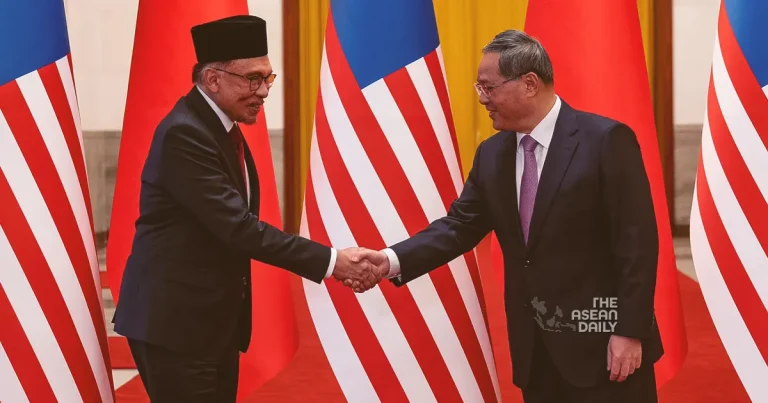31-5-2024 (KUALA LUMPUR) As Malaysia and China celebrate 50 years of diplomatic relations, experts anticipate a significant leap forward in their economic ties, particularly in the realm of emerging technologies. With a foundation of mutual trust and understanding, the two nations are poised to forge deeper collaborations in cutting-edge fields such as artificial intelligence (AI), the Internet of Things (IoT), and blockchain technology.
Dr. Shankaran Nambiar, the head of research and senior research fellow at the Malaysian Institute of Economic Research (MIER), highlights the tremendous opportunities for both nations to propel their economic partnership forward. “There is ample scope for cooperation in emerging technologies such as AI, IoT, blockchain technology, and the like,” he states. “China is a leader in these technologies, and it can channel investments in these areas in Malaysia and also enter into joint ventures with Malaysian companies.”
Nambiar envisions government-linked companies taking the lead in facilitating these technological collaborations. “The government-linked companies can take the lead in these efforts,” he suggests, underscoring the pivotal role these entities can play in fostering partnerships between Malaysian and Chinese firms.
Nambiar also notes the alignment between the economic policy visions of Malaysian Prime Minister Datuk Seri Anwar Ibrahim and China. “The Prime Minister shares a similar line of thinking with China. In particular, Anwar is in agreement that it is time to float an Asian Monetary Fund. He is also fully supportive of the idea of dedollarisation, something that he expressed during his visit to China,” he explains.
According to Nambiar, Anwar and Chinese leader Xi Jinping have the opportunity to usher in a new era of South-South cooperation, placing the developing world at the center of the global economy. “Anwar will be able to work with Chinese leader Xi Jinping to usher in a new era of South-South cooperation to place the developing world at the center of the global economy,” he affirms.
Assoc Prof Dr. Ngeow Chow Bing, a director of the Institute of China Studies at Universiti Malaya, echoes the sentiment, stating that Malaysia is now seeking to leverage China’s significant technological breakthroughs as part of their continuing relationship. “Besides trade, we are now looking towards the significant technological breakthroughs in China to be part of the continuing relationship between both nations,” he says.
Ngeow also highlights the opportunity presented by Malaysia’s upcoming chairmanship of Asean in 2025. “China is one of the most active dialogue partners in Asean, and the event would provide a good platform for engagement not only with Malaysia but with Asean as a whole,” he adds.
Despite occasional differences between the two nations, Ngeow emphasizes their resort to diplomacy and mature dialogue to resolve conflicts. “This will be the basis for both nations as they move forward in their relationship,” he states, noting that Malaysia and China share similar positions on several current issues.
Ngeow also notes the importance both Anwar and Xi place on “civilizational heritage” as a guiding factor, suggesting that this shared cultural appreciation could further deepen the Malaysia-China relationship.
Dr. Azmi Hassan, a senior fellow at the Nusantara Academy for Strategic Research, acknowledges the win-win nature of the relationship between Malaysia and China over the past 50 years, which has facilitated significant Chinese investment in the country. “Without China’s Belt Road Initiative, investment and technology, the construction of the East Coast Rail Link would remain only a dream for us,” he remarks.
Hassan acknowledges the potential challenge posed by the ongoing trade war between China and the United States, which may test Malaysia’s ability to remain neutral in a polarized Indo-Pacific region. However, he notes that the strong relations and mutual understanding between Malaysia and China have helped both nations resolve issues without jeopardizing trade.




